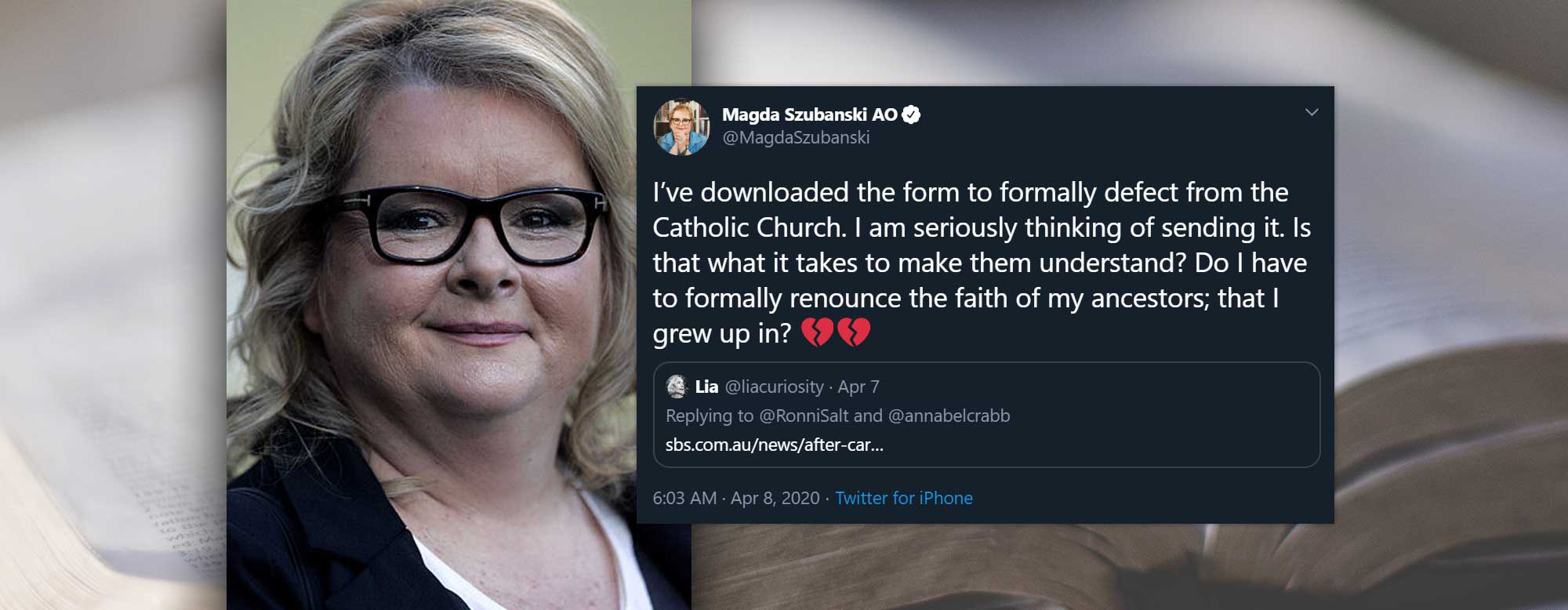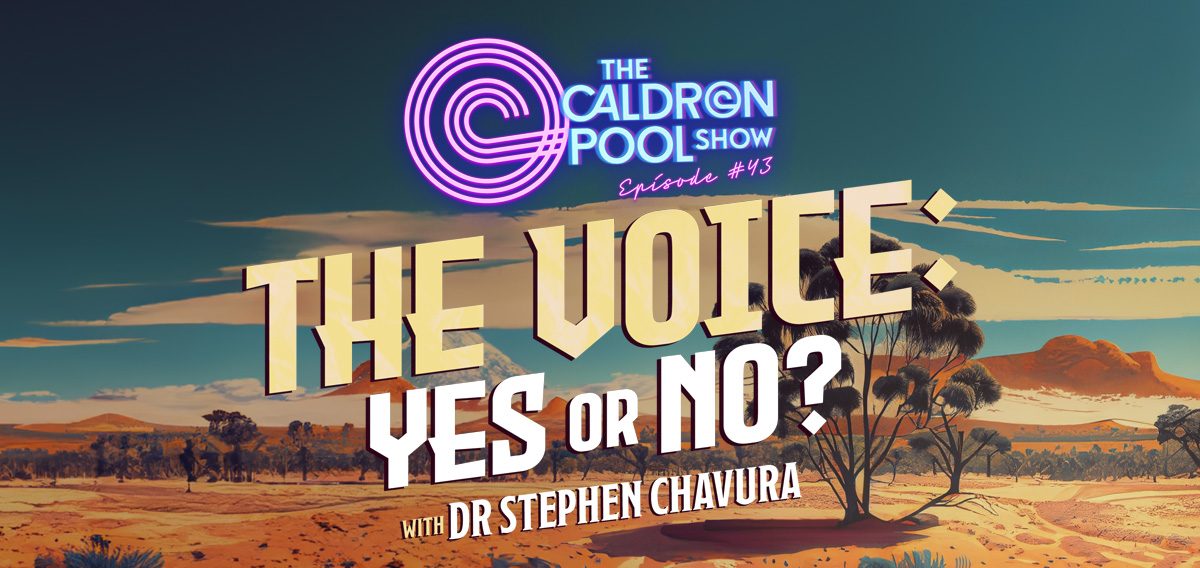There is an incurable habit of the human heart to ‘otherise’ evil—to identify all of the injustices of the world with some other person or group of people. Our tendency to blame others goes right back to the first sin in the Garden of Eden, where Adam blamed Eve and Eve blamed the serpent. It is so embedded in our DNA that no one needs to teach us to blame others—we’re born with that ability and it needs to be trained out of us.
Left unchecked, this blame game grows more conniving with time and can pop up in unexpected places.
When Westerners lambast their own nations, for instance, it can sound like humility and a sort of ownership for past wrongs. But below the surface, very often the blame is not being owned by the one confessing—rather, it’s being shifted to people from past generations (whose statues should probably be toppled), or to rival political blocs (where all of the bigots are likely hiding out).
There are certainly times and circumstances to apologise and make amends for collective sins. But it’s a currency that risks being devalued if people use it to shift the blame elsewhere in order to regain their own moral high ground on the issues of the day.
Buy Kurt’s new book Cross and Culture: Can Jesus Save the West?
Aleksandr Solzhenitsyn (1918-2008) saw the very worst of human evil, having suffered in the gulags of Soviet Russia. But even he was able to recognise that sin is not merely a pathology we can ascribe to others, but a sickness endemic to every one of us:
“If only it were all so simple! If only there were evil people somewhere insidiously committing evil deeds, and it were necessary only to separate them from the rest of us and destroy them. But the line dividing good and evil cuts through the heart of every human being. And who is willing to destroy a piece of his own heart?“
Solzhenitsyn, The Gulag Archipelago, 2003, 75
It is natural to believe the worst about others and the best about ourselves. Jordan Peterson makes a good case for this: imagining ourselves as Germans living in the 1940s, he muses, it’s easy to assume that we would have spoken out against the Nazis for their savagery. But as it happened, the vast majority of Germans remained silent, or were even complicit in the murder of millions during the Holocaust.
Those who resisted Nazi terror were the exception, and we rightly celebrate them still today. Sadly, though, the most natural response during those dark years was self-preservation, not courage. This tells us a lot about human nature—a lot more than we can see or are willing to admit in times of peace.
In our moments of true honesty, we recognise the evil within our own hearts. Religions have long been used as a way to address this and to keep bad behaviour in check. But if we approach Christianity as a set of moral rules, we misunderstand it entirely.
Check out Kurt’s new book Cross and Culture: Can Jesus Save the West?
The Old Testament contains over 600 commandments. If we are hoping for better news in the New Testament, over 1,000 more imperatives are added there. Following all of these rules in hopes of redemption—when we already know how immoral our hearts are—would be like trying to lift a hippo with chopsticks. It is a futile task.
This is exactly what we read in the book of Romans, where the apostle Paul affirms that “no one can ever be made right with God by doing what the law commands. The law simply shows us how sinful we are.” No one knew this better than Paul, who as a Pharisee had followed the law as perfectly as anyone could. In the end, he realised he still desperately needed a Saviour:
“The law of Moses was unable to save us because of the weakness of our sinful nature. So God did what the law could not do. He sent his own Son in a body like the bodies we sinners have. And in that body God declared an end to sin’s control over us by giving his Son as a sacrifice for our sins. He did this so that the just requirement of the law would be fully satisfied for us…“
Romans 8:3-4a
This is the gospel. In his perfect life, Jesus fulfilled the law perfectly for us. In his death, he took the punishment for our lawbreaking, so that we could be forgiven and stand before God uncondemned and unashamed. And in his resurrection, Jesus gave us his Spirit, so that we can now obey God’s law from the heart. All of this is a gift of God’s grace that we receive directly from him, simply by putting our faith in Jesus:
“God saved you by his grace when you believed. And you can’t take credit for this; it is a gift from God. Salvation is not a reward for the good things we have done, so none of us can boast about it. For we are God’s masterpiece. He has created us anew in Christ Jesus, so we can do the good things he planned for us long ago.“
Ephesians 2:8-10
Good works are not the cause of our salvation—rather, they are the result of it. Ethical living is the fruit, not the root, of the Christian life. If we have trusted in Jesus, we no longer need to seek God’s approval because we already have it. In the words of Martin Luther, whose life was truly changed by this revelation, “God does not need your good works, but your neighbour does.”
Buy Kurt’s new book Cross and Culture: Can Jesus Save the West?
The gospel sets us free from guilt, blame-shifting and moral posturing. It enables our good works to truly be good because they come from a pure heart rather than ulterior motives. Set free from all other entanglements, our good deeds can be truly effective in changing the world around us for the better.
The Christian ethic is a high calling. The realisation that humans were made to reflect God and that we are accountable to him for our moral actions comes as a rude shock to a culture caught up in pleasure-seeking. But it’s far better than the low standards we’ve set in the modern world that have given rise to the moral mess around us.
And God’s path for us comes with a promise: just as his moral standards are heaven-sent, so all of heaven’s resources are at our disposal as we live them out.
The above article is an excerpt of Kurt’s new book Cross and Culture: Can Jesus Save the West?

















